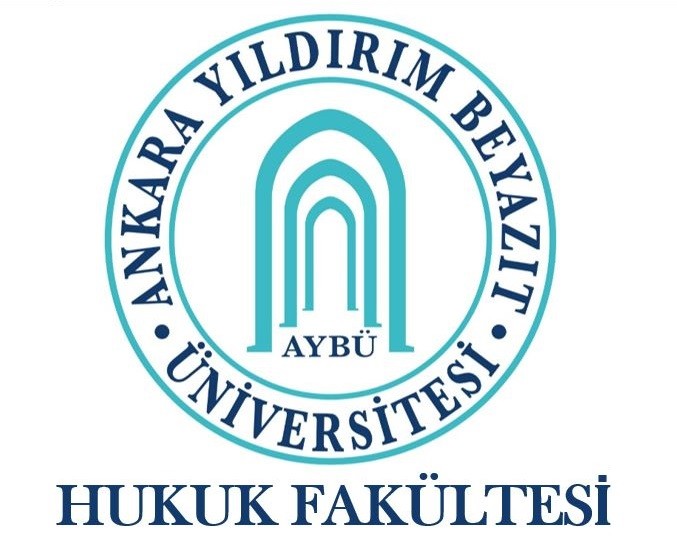Abstract
Hâkimin hukuku re’sen uygulaması, Hukuk Muhakemeleri Kanunu’nun 33. maddesi gereğince, hâkime verilmiş bir ödevdir. Kanunda, bu ilkenin yalnızca ilk derece yargılamasıyla sınırlı olarak uygulanması zorunluluğu bulunmamaktadır. Bu nedenle, bu ilkenin kanun yolu aşaması için de geçerli olduğunun kabulü gerekir. Fakat “hâkimin hukuku re’sen uygulaması ilkesi”nin istinaf incelemesi bakımından nasıl yorumlanması gerektiği, izaha muhtaç bir husustur. Zira Hukuk Muhakemeleri Kanunu’nun 355. maddesine göre istinaf incelemesinin, kamu düzenine aykırılık istisnası bir kenara, dilekçede belirtilen hususlarla sınırlı olarak yapılması gerekmektedir. Bu yönüyle söz konusu hükmün, yargılamaya hâkim temel ilkelerden olan hâkimin hukuku re’sen uygulama ilkesini göz ardı ettiğini söylemek mümkündür.
Bununla birlikte, istinaf incelemesinden farklı olarak temyiz incelemesinde, temyiz sebeplerine bağlı olmaksızın incelemenin yapılacağını düzenleyen Hukuk Muhakemeleri Kanunu m. 369 hükmü sebebiyle, istinafta ileri sürülmeyen hususların Yargıtay tarafından ele alınıp alınamayacağı sorunu
doğmaktadır.
References
- Akil, Cenk (2008) “Hakimin Hukuku Kendiliğinden Uygulama İlkesi”, AÜHFD, C: 57, S: 3, s. 1-32.
- Akkaya, Tolga (2009) Medenî Usûl Hukukunda İstinaf, 1. Baskı, Ankara, Yetkin Yayınları.
- Aktepe Artık, Sezin (2018) “İstinaf Kanun Yolunda Kamu Düzeni Kavramı”, TBB Dergisi, S: 134, s. 257-292.
- Albayrak, Adem (2017) Hukukta İstinaf Uygulaması, 3. Baskı, Ankara, Adalet Yayınları.
- Arslan, Ramazan/Yılmaz, Ejder/Taşpınar Ayvaz, Sema/Hanağası, Emel (2021) Medenî Usul Hukuku, 7. Baskı, Ankara, Yetkin Yayınları.
- Atalı, Murat/Ermenek, İbrahim/Erdoğan, Ersin (2021) Medeni Usul Hukuku, 4. Baskı, Ankara, Yetkin Yayınları.
- Bolayır, Nur (2019) Medenî Usûl Hukuku’nda Hâkimin Hukuku Re’sen Uygulaması, 1. Baskı, İstanbul, On İki Levha.
- Kurtoğlu, Tülin (2017) Özel Hukukta İstinaf Denetimi ve Yargılaması, 1. Baskı, Ankara, Yetkin Yayınları.
- Kuru, Baki/Aydın, Burak (2021) İstinaf Sistemine Göre Yazılmış Medenî Usul Hukuku Ders Kitabı, 6. Baskı, Ankara, Yetkin Yayınları.
- Öztek, Selçuk (2021) Türk Medeni Yargılama Hukukunda İstinaf ve Temyiz, 1. Baskı, Ankara, Yetkin Yayınları.
- Pekcanıtez, Hakan/Atalay, Oğuz/Özekes, Muhammet (2019) Medenî Usûl Hukuku, 7. Baskı, İstanbul, On İki Levha.
- Pekcanıtez, Hakan/Özekes, Muhammet (2017) Medeni Usul Hukuku, 15. Baskı, İstanbul, On İki Levha.
- Ünal Kaya, Hilal (2020) “Medeni Yargıda İstinaf Sebepleriyle Bağlılık Kuralı”, İstanbul Hukuk Mecmuası, C: 78, S: 4, s. 1899-1919.
Abstract
Iura novit curia is a duty of the judge according to article 33 of Code of Civil Procedure. In this code, this principle is not obligated only by the court of first instance, it also needed to be accepted valid for legal remedy process. But the principle of iura novit curia needed to be explained in terms of appealing
procedure. One of the prevailing principles of judging iura novit curia, needs to be explained in view of the examination of courts of appeals. According to the article 355 of Code of Civil Procedure, appealing procedure, except contradiction to public order, restricted by the content of the petition. It could be told that, this article of the code takes no account of the judging principle iura novit curia. However, in the cassation procedure, in contrast of the appealing procedure, because of the article 369 of Code of Civil Procedure, which regulates the examination must be done without the content of the petition, the question of The Court of Cassation should or should not examine the points that are not mentioned in the appealing process.
Keywords
References
- Akil, Cenk (2008) “Hakimin Hukuku Kendiliğinden Uygulama İlkesi”, AÜHFD, C: 57, S: 3, s. 1-32.
- Akkaya, Tolga (2009) Medenî Usûl Hukukunda İstinaf, 1. Baskı, Ankara, Yetkin Yayınları.
- Aktepe Artık, Sezin (2018) “İstinaf Kanun Yolunda Kamu Düzeni Kavramı”, TBB Dergisi, S: 134, s. 257-292.
- Albayrak, Adem (2017) Hukukta İstinaf Uygulaması, 3. Baskı, Ankara, Adalet Yayınları.
- Arslan, Ramazan/Yılmaz, Ejder/Taşpınar Ayvaz, Sema/Hanağası, Emel (2021) Medenî Usul Hukuku, 7. Baskı, Ankara, Yetkin Yayınları.
- Atalı, Murat/Ermenek, İbrahim/Erdoğan, Ersin (2021) Medeni Usul Hukuku, 4. Baskı, Ankara, Yetkin Yayınları.
- Bolayır, Nur (2019) Medenî Usûl Hukuku’nda Hâkimin Hukuku Re’sen Uygulaması, 1. Baskı, İstanbul, On İki Levha.
- Kurtoğlu, Tülin (2017) Özel Hukukta İstinaf Denetimi ve Yargılaması, 1. Baskı, Ankara, Yetkin Yayınları.
- Kuru, Baki/Aydın, Burak (2021) İstinaf Sistemine Göre Yazılmış Medenî Usul Hukuku Ders Kitabı, 6. Baskı, Ankara, Yetkin Yayınları.
- Öztek, Selçuk (2021) Türk Medeni Yargılama Hukukunda İstinaf ve Temyiz, 1. Baskı, Ankara, Yetkin Yayınları.
- Pekcanıtez, Hakan/Atalay, Oğuz/Özekes, Muhammet (2019) Medenî Usûl Hukuku, 7. Baskı, İstanbul, On İki Levha.
- Pekcanıtez, Hakan/Özekes, Muhammet (2017) Medeni Usul Hukuku, 15. Baskı, İstanbul, On İki Levha.
- Ünal Kaya, Hilal (2020) “Medeni Yargıda İstinaf Sebepleriyle Bağlılık Kuralı”, İstanbul Hukuk Mecmuası, C: 78, S: 4, s. 1899-1919.
Details
| Primary Language | Turkish |
|---|---|
| Subjects | Law in Context |
| Journal Section | PRIVATE LAW |
| Authors | |
| Publication Date | September 12, 2022 |
| Published in Issue | Year 2022 |
Cite


